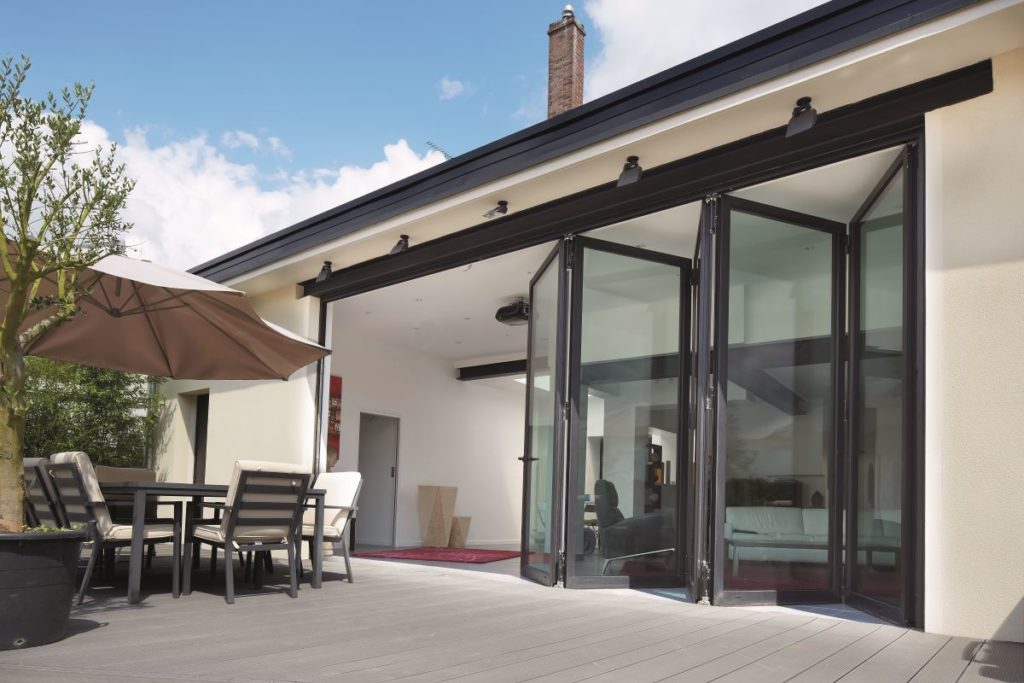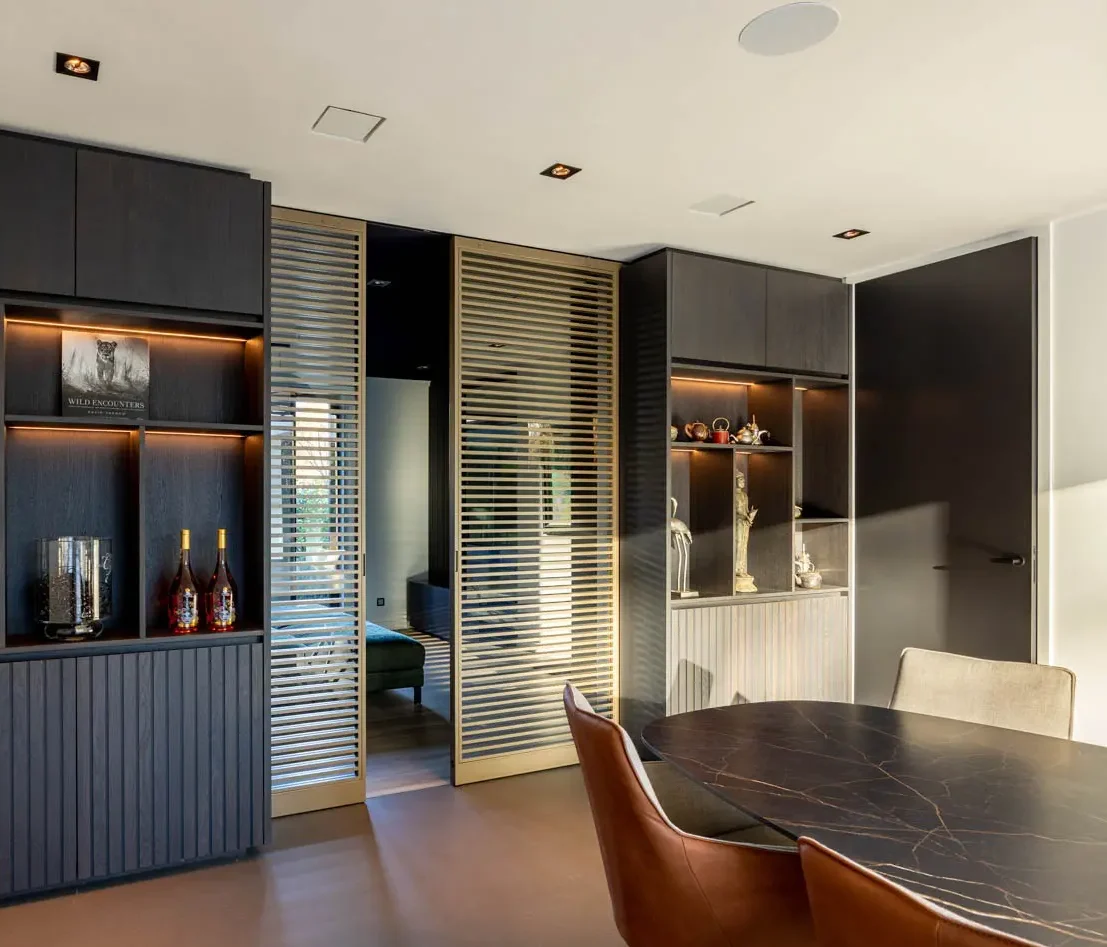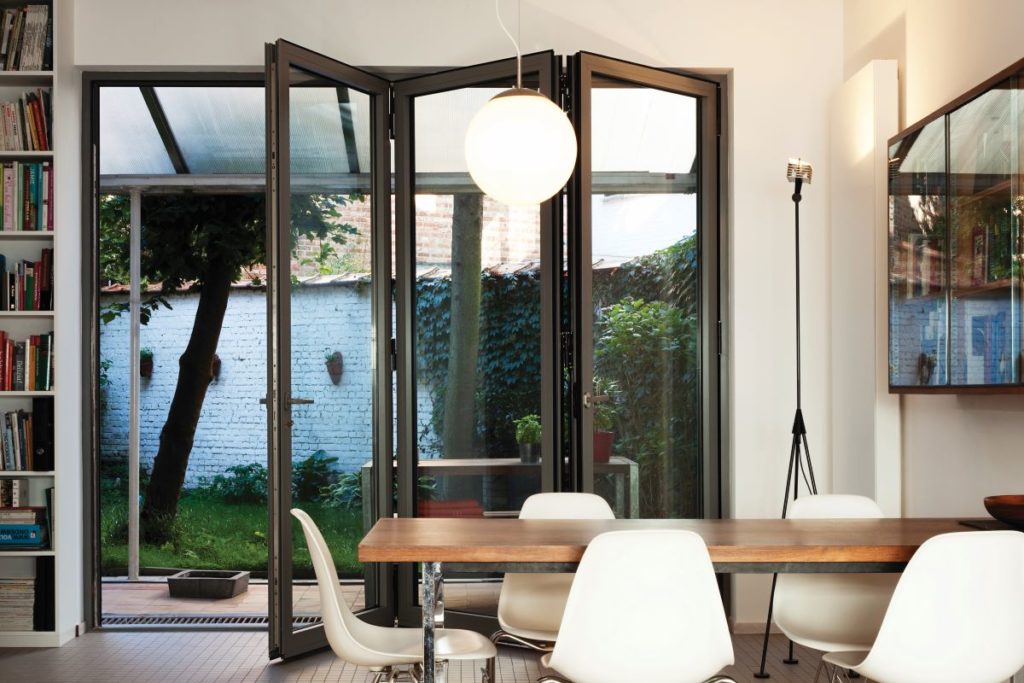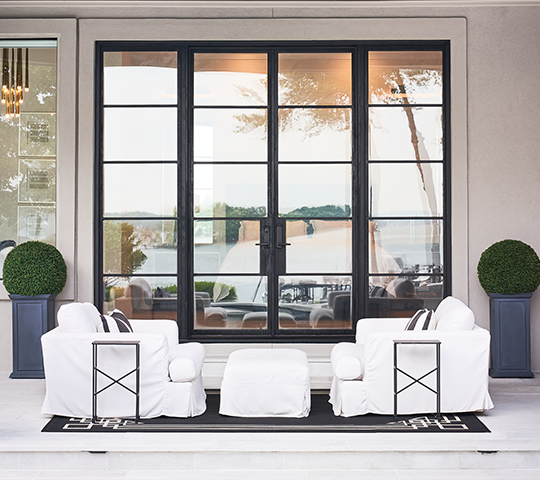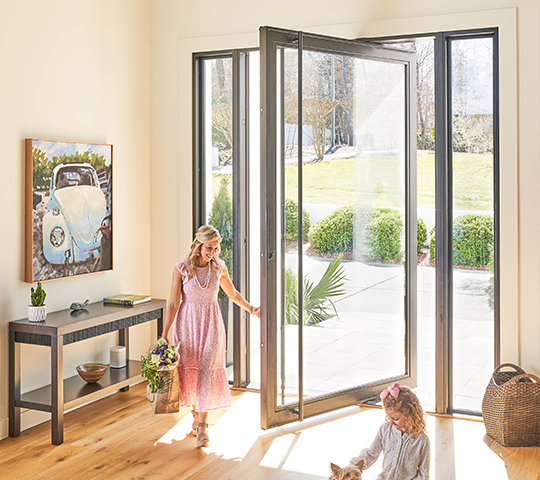If you’re considering a custom iron door for your home, its durability and longevity is probably top of mind. You might be wondering if an iron door can rust or tarnish over time, or how to keep wrought iron from rusting at all. Before we get into the science behind rust, it’s important to establish the difference between the materials that we use for custom iron doors at Clark Hall.
Technically, all of our doors are made of steel — visually, there is no difference between steel and iron — it’s usually just a question of semantics. In the industry, a steel door can communicate an interior commercial steel door, like the ones used in hospitals or apartment buildings, so we opt to use the term iron instead. But, what’s the difference between steel and iron?
Simply put, the primary difference between iron and steel is that iron is a metal whereas steel is an alloy. In other words, iron occurs naturally while steel is a man-made material that’s made by mixing iron and carbon together. So, where does wrought iron come in? Wrought iron is just iron that’s been heated and then worked with tools. Any scrollwork that you see on our ornate doors is made of wrought iron, while the doors themselves are always steel.
Now that we’ve covered the materials we’re working with, let’s dig into what rust is, the metals that can rust, and how to prevent rust from forming on your door.
What is Rust?
Rust refers to iron oxidation which is the combination of iron and oxygen. Any metal that contains iron can rust, while other metals react to oxygen in other ways. Metals with little to no iron content, or non-ferrous metals, will not rust. Keep in mind, rust isn’t inevitable if you have something that is made of an iron-based material — you just have to maintain it and keep it clean because rust can destroy metal objects, leading to time consuming and costly repairs and replacements. The best way to think about an iron door’s susceptibility to rust is to compare it to the doors on a car. When exposed to the elements, a scratch on a car’s metal doors or rocker panels will rust over time. The same is true for any iron door — the key is to make sure you keep the door clean and touch up any scratches promptly.
Metals That Can Rust
The thought of your favorite metal piece or custom iron door rusting can be scary — after all, you made an investment and you want it to last. When cared for properly, wrought iron and steel can last a lifetime. Our custom doors require nearly no regular maintenance to keep them looking their best for years to come. Again, this is because of the high-quality steel that we use in the fabrication process. Most competitors that use pre-fabricated doors from overseas will receive doors that have been exposed to saltwater during the lengthy shipping process, leaving small rust marks that are covered with paint before installation—and the worst part? These quick-to-rust doors come with flimsy warranties that don’t cover any of the looming damages that are bound to pop up.
For a quick list, here are three metals that you need to know about when you’re researching your rust risk:
- Steel — A mixture of iron and carbon. Stainless steel is different than steel because it contains chromium, forming a shield against rusting which makes it more corrosion-resistant. The more chromium, the better.
- Cast Iron — A combination of iron, carbon, and silicon. This material can rust.
- Wrought Iron — Contains trace amounts of carbon, but is nearly pure iron, so it can be susceptible to rust.
How to Keep Wrought Iron From Rusting
Whether you have an ornate door with wrought iron scrollwork or you have a modern door made of steel, the risk of rust is relatively low. Think about it this way — your steel or iron door is not as susceptible to scratches where water could get in whereas metal on a car is. The best thing you can do to prevent rust on your custom iron door is to regularly check for any minor scratches, touch it up with the touch-up kit provided to you when your door is installed, and clean your door with a gentle cloth and mild soap from time to time to remove any dirt or debris buildup. Lastly, don’t forget to dry your door after you clean.
When it comes to your rust risk, the bottom line is that rust is extremely rare on custom Clark Hall iron doors. We manufacture all of our doors and we don’t cover up rust spots before installation like many of our competitors. All of our handcrafted doors are made from 14-gauge steel panels and require nearly no regular maintenance to uphold their beauty — plus, they can add some serious value to your home and come with an industry-leading warranty to provide peace of mind. To learn more about our doors, get in touch with our experts to schedule a consultation.
Frequently Asked Questions About Wrought Iron Rust
Can wrought iron be left outside?
Wrought iron will rust if left to the elements, but most iron patio furniture and exterior doors are finished with a protective coating to prevent this from happening. For example, all of our custom iron doors go through an extensive 7-step automotive grade finishing process that ensures the finish’s durability.
How long does wrought iron last?
If maintained properly, wrought iron can last for decades. This material is known for its durability and longevity.
Why is wrought iron so popular?
When it comes to doors with intricate scrollwork, wrought iron is a popular choice of material because it keeps its shape well, has high tensile strength, is easy to weld, and is highly ductile.
Interested in Learning More?
Clarkhall contact form - Dual Column
"*" indicates required fields


